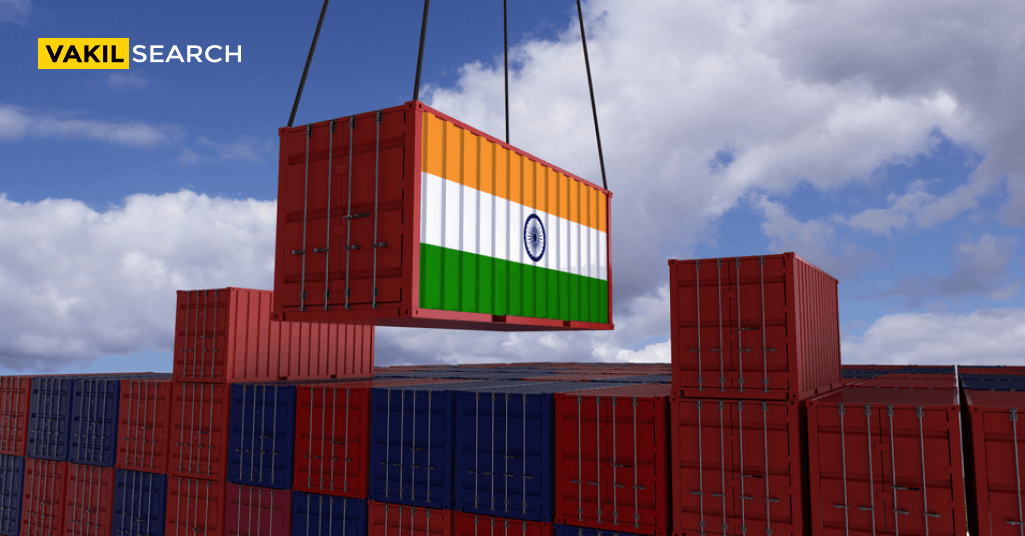To enhance the growth of the garment industry in India, the APEC has made a lot of efforts through its various programs and schemes. This article explains what AEPC is and what its objectives are.
APEC Overview:
The Asia Pacific Economic Cooperation (APEC) serves as the nodal entity to promote and enhance the exports of ready-made garments from India. AEPC does not cater to the needs of woolen knitwear and garments made of leather, jute, and hemp. The Ministry of Textiles sponsors AEPC. It has its headquarters in Gurgaon, with a registered office at Okhla. It also has ten other offices across India.
What Does APEC India Aim to Achieve?
AEPC aims to enhance the competitiveness of the Indian apparel industry globally and sustainably. The council works towards promoting the Indian garment industry worldwide. It strives to make India a preferred destination for the sourcing of garments for textile industries in various countries worldwide.
The council provides invaluable assistance and support to ready-made apparel exporters in India and to buyers from across the globe who source garments from India. AEPC serves as a promotional and facilitation body for manufacturing garments in India and its exports.
Key Objectives of Asia Pacific Economic Cooperation India
- To ensure an incessant flow of skilled personnel to the garment industry by offering basic training to instil skills in the workforce.
- To guide in the sourcing of machinery and infrastructure.
- To serve as a one-stop solution to seek advice, any information on market intelligence, and technical guidance.
- To assist the members, especially in the small-scale sector, by guiding them about the import license facilities provided and how to apply for the same.
- To showcase the best capabilities of Indian garment exports through the prestigious India International Garment Fair organised twice a year. These fair hosts over 350 exhibitors who exhibit their garment designs and patterns.
- To provide members access to updated trade statistics, potential markets, information on international fairs, and also assistance to participate in such fairs.
- To dig upon information and play a large role in identifying new markets and leading trade delegations overseas.
- To undertake promotional measures after conducting substantial market research and provide inputs for budgets and Foreign Trade Policy.
- To monitor the tariffs of importing countries and finds out the product range and export prices of garments of other countries.
- To develop new patterns and designs of garments and performs promotional activities in individual foreign markets.
- To send missions and trade delegations abroad and also conducts surveys to gather information on potential exports of ready-made garments from the country,
- To highlight the advantages of trade and commerce with India to importers and the public in foreign countries.
- To cooperate with various other organisations in the country and governments within the country and abroad to further promote exports of ready-made garments.
What Are the Activities Undertaken by the APEC India?
To attain its objectives, the council performs certain activities. The following are some important activities performed by the Asia Pacific Economic Cooperation (APEC):
- The AEPC arranges workshops and seminars. Fashion designers from across the world are invited to attend such workshops.
- International fairs are conducted by the AEPC. Indian garment exporters can impress potential international clients by showcasing their products.
- The council rolls out various schemes and initiatives in tandem with the Government of India. Schemes like the Interest Subvention Scheme, Rebate of State Levies Scheme, and Market Development Assistance Scheme encourage the garment business to enhance the growth of Indian garment exports.
- The “Apparel India Magazine” is a monthly magazine published by the council. The council disseminates important and upgraded information about Government schemes, their rules and procedures, and the latest trends. The magazine is also available on the APEC website, which is another source of wide information on various garment export-related topics.
- The AEPC invests and organises skill development and up-gradation programs to ensure an uninterrupted flow of skilled workforce to the Indian garment industry.
- AEPC’s research can be of immense benefit to the exporters as it unveils data on potential markets and products that could be exported.
What Other Benefits are Provided by AEPC India and How to Avail Them
There are various subsidies and schemes provided to members registered with APEC, such as the Interest Subvention Scheme, Technology Upgradation Fund Scheme, Textile Centre Infrastructure Development Scheme, and Rebate of State Levies Scheme, among others.
If you are in the garment exporting business in India, you will have to register to enjoy the benefits of AEPC provided by the AEPC. You can register by yourself by visiting the AEPC Website or seek service from professionals like Vakilsearch for easy, properly documented, and quick registration of your garment export business with the AEPC.
The Takeaway
With the expertise of Asia Pacific Economic Cooperation (APEC) India and all the advantages it provides to the Indian garment industry, Indian exporters could grow stronger each year in their achievements, proficiency, and skills. The International buyers also get superior solutions for their garment imports. AEPC thus creates a win-win situation for India as well as foreign importers.
FAQs
How do I join APEC?
An individual person cannot join APEC as it is an inter-governmental forum.
Where is the APEC 2023?
The annual APEC CEO Summit 2023 will be hosted in the Moscone Centre West in San Francisco, California on 15th and 16th November. The Summit programme theme of 'Creating Economic Opportunity' will feature a lineup of dynamic and diverse speakers who will emphasise the possibilities of collaboration and new thinking to build the future with a focus on sustainability, inclusivity, resilience, and innovation.
Who is the chair of APEC 2023?
Mary T. Barra, Kevin Ali and Alfred F. Kelly, Jr. are the co-chairs of the host committee.
Is India member in APEC?
No, India is not a member of APEC (Asia-Pacific Economic Cooperation). However, India has been involved in APEC activities as an observer since 1993 and participates in various APEC meetings and initiatives.
Who is the father of APEC?
The initiative to establish APEC emerged from discussions and consultations among leaders and officials from different economies. APEC was firstly publicly mentioned by then prime minister of Australia Bob Hawke
Can Indian citizen apply for APEC card?
The APEC Business Travel Card (ABTC) program facilitates streamlined travel for businesspeople among participating APEC economies. Therefore, Indian citizens are not eligible to apply for an APEC card. The ABTC program is currently available to citizens of certain APEC member economies who meet specific eligibility criteria. It's advisable to check the official ABTC program website or contact the relevant authorities for the most up-to-date information on eligibility and participating countries.
Why India is not a member of APEC?
There can be various reasons why India has not pursued APEC membership. Some factors include prioritizing engagement with other regional organizations like the South Asian Association for Regional Cooperation (SAARC) and the Bay of Bengal Initiative for Multi-Sectoral Technical and Economic Cooperation (BIMSTEC). Additionally, India has its own regional integration initiatives, such as the Indian Ocean Rim Association (IORA) and the Indian Ocean Naval Symposium (IONS).
Is APEC public or private?
APEC (Asia-Pacific Economic Cooperation) is an intergovernmental forum composed of 21 member economies from the Asia-Pacific region.
What are the benefits of joining APEC?
Joining APEC offers several potential benefits for member economies. Some of the key advantages include:
✷ Trade and Economic Cooperation: APEC facilitates discussions and initiatives to promote trade liberalization, economic integration, and regional economic cooperation among member economies. This can lead to increased market access, reduced trade barriers, and enhanced economic opportunities.
✷ Information Sharing and Best Practices: APEC provides a platform for member economies to exchange knowledge, share best practices, and learn from one another. This knowledge sharing can lead to improved policies, regulations, and standards across various sectors.
✷ Networking and Business Opportunities: APEC meetings and events bring together government officials, business leaders, and other stakeholders from the region. This offers opportunities for networking, business collaborations, and the exchange of ideas, which can foster economic growth and partnerships.
✷ Capacity Building and Technical Assistance: APEC offers capacity-building programs, technical assistance, and training opportunities to member economies. This support helps strengthen institutional capabilities, enhance competitiveness, and promote sustainable development.
✷ Policy Dialogue and Cooperation: APEC provides a platform for policy dialogue and cooperation on regional and global economic issues. It allows member economies to work together to address challenges, promote inclusive growth, and achieve shared objectives.
Can I enter Japan with an APEC?
Yes, the APEC Business Travel Card (ABTC) can facilitate entry into Japan for eligible cardholders. If you plan to travel to Japan or any other APEC economy using an ABTC, it is recommended to check the latest information and requirements from the official website of the ABTC program or contact the relevant immigration authorities of the destination country.
How many countries join APEC?
APEC (Asia-Pacific Economic Cooperation) consists of 21 member economies. These member economies are:
✷ Australia
✷ Brunei Darussalam
✷ Canada
✷ Chile
✷ China
✷ Hong Kong, China (a separate customs territory and a member through China)
✷ Indonesia
✷ Japan
✷ Malaysia
✷ Mexico
✷ New Zealand
✷ Papua New Guinea
✷ Peru
✷ The Philippines
✷ Russia
✷ Singapore
✷ South Korea
✷ Taiwan (officially known as Chinese Taipei)
✷ Thailand
✷ United States
✷ Vietnam








